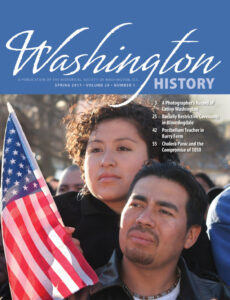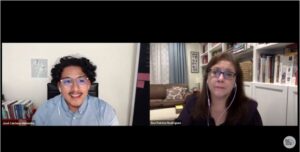
Today, there are over 4 million Central Americans in the United States. However, the rich history of these peoples and countries are often not taught in classrooms. To address this, the DC-based non-profit Teaching for Change launched Teach Central America Week, held during National Hispanic Heritage Month, to support educators by providing free resources to teach about the histories of Belize, Costa Rica, El Salvador, Guatemala, Honduras, Nicaragua, and Panama. Now in its third year, the 2021 Teach Central America Week runs from October 4 to 10, and this year the DC History Center joins Teaching for Change to highlight local stories for teachers to draw from.
The DC History Center resources explore the role of Central Americans in the 1970 founding and continued celebration of DC’s Latino Festival; how the local Salvadoran community maintains its cultural identity while lacking political representation; and the role La Esquina – the corner at Mt. Pleasant and Kenyon Streets – plays in providing a sense of home-away-from-home for Washington-area residents with roots in Guatemala and El Salvador, among other countries.

For more resources and leads for researching local stories from Latino/a/x communities, including but not limited to those with roots in Central America, take a look at the DC History Center’s Guide to Selected Research Materials Relating to the DC Latino/a/x Communities in Washington, DC, developed by University of the District of Columbia student—and DC History Center collaborator—Mariana Barros-Titus.
This guide is among the resources being offered via the Teaching for Change’s Teaching Central America website for educators to use at any point during the academic year.